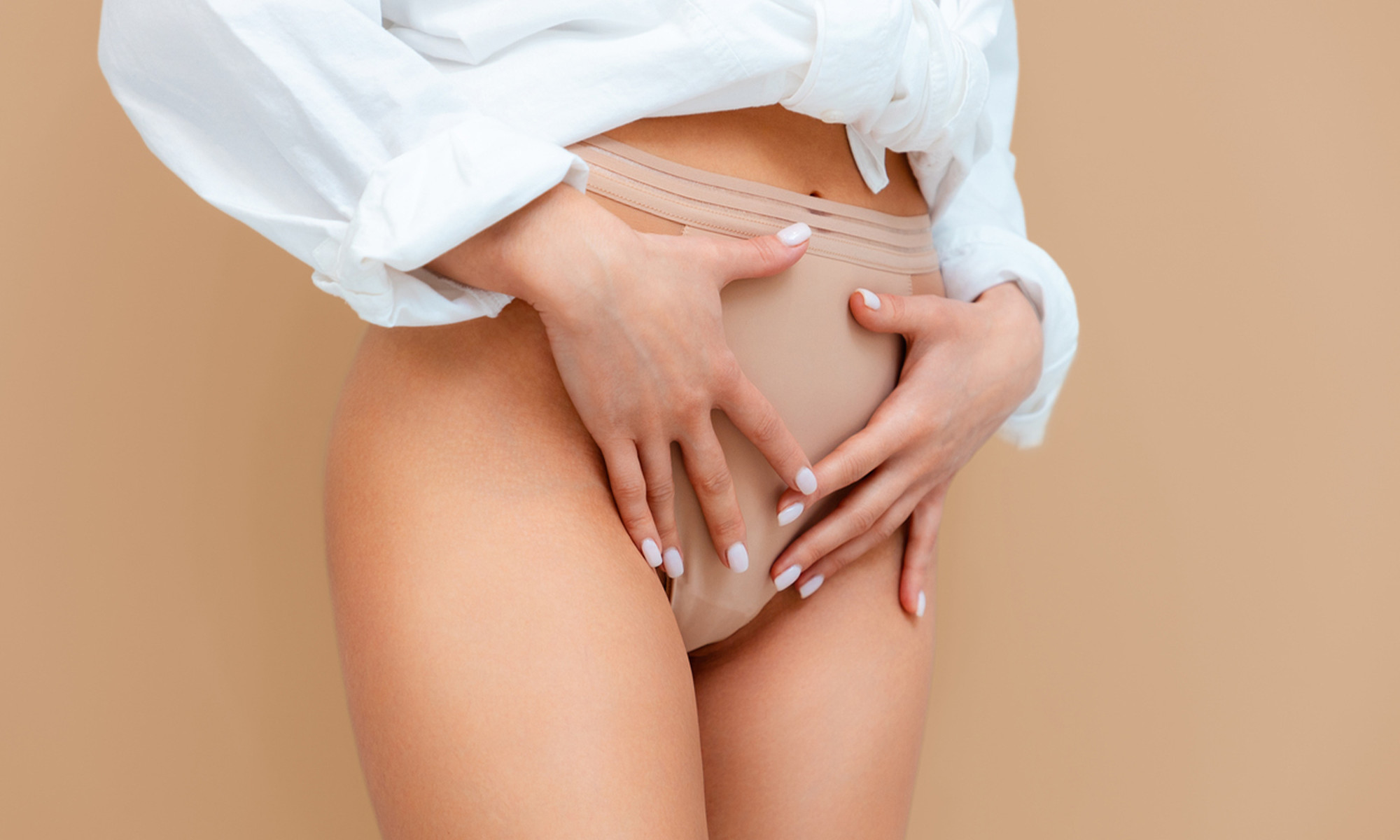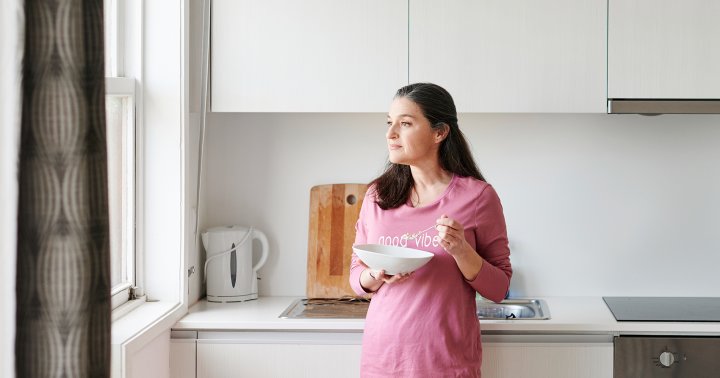This Makes You More Prone To Yeast Infections & UTIs, Experts Say
The yeast infection following antibiotic treatment is a shared experience amongst many people with vaginas.


mbg Assistant Beauty Editor
mbg Assistant Beauty Editor
Hannah Frye is the Assistant Beauty Editor at mindbodygreen. She has a B.S. in journalism and a minor in women’s, gender, and queer studies from California Polytechnic State University, San Luis Obispo. Hannah has written across lifestyle sections including health, wellness, sustainability, personal development, and more.
Image by iStock / Ildar Abulkhanov May 26, 2023 Our editors have independently chosen the products listed on this page. If you purchase something mentioned in this article, we may The yeast infection following antibiotic treatment is a shared experience amongst many people with vaginas. It’s so common, in fact, that plenty of people take it upon themselves to pick up probiotics from the supermarket after getting their prescription as a *fingers-crossed* DIY prevention effort. But have you ever wondered: If antibiotics can lead to a yeast infection, does that mean the two are actually linked? Further, wouldn’t this mean what you eat and drink impacts your vaginal health directly? I wondered the same thing, so I asked experts for the 101. 
Advertisement
This ad is displayed using third party content and we do not control its accessibility features.
The gut microbiome & vaginal microbiome link
Alas, it’s true: “The gut and vaginal immune systems are interconnected,” says board-certified OB-GYN Karen Toubi, M.D.
“The gut microbiome helps educate and modulate the immune system, which can influence immune responses in other areas, including the vagina,” Toubi says.
So when your gut health is struggling, be it after you’ve been sick, had a long weekend of junk food and alcohol, etc., that may be reflected in your vaginal health, too.
What’s more, your gut and vagina actually share bacteria back and forth. “Microbes can migrate between the gut and vagina, establishing a dynamic relationship,” notes board-certified OB-GYN Renita White, M.D.
Your gut and vaginal microbiome profiles aren’t identical, but they do have shared characteristics. “The vaginal microbiome is made up of a mix of bacteria, but is dominated by Lactobacillus species,” White says. This specific bacteria is also found in the gut, she adds.
“This type of bacteria produces lactic acid1, which helps to keep vaginal pH more acidic in order to ward off infections,” White notes. In other words, you need this bacteria to be balanced if you want your vaginal microbiome to thrive without complications.
Why can antibiotics give you a yeast infection?
While more research is needed to confirm which types of antibiotics will impact the vaginal microbiome the most, research has shown an increased risk for yeast infections after antibiotic treatment2 overall.
The reason antibiotics can cause such problems for folks with vaginas is that they kill off bacteria in general, not distinguishing between the good and the bad (though that would be nice, right?).
“Broad-spectrum antibiotics can eliminate both harmful and beneficial bacteria in both regions, allowing opportunistic pathogens to overgrow and potentially leading to imbalances in the vaginal microbiome,” Toubi explains.
She continues, “An imbalanced gut microbiome can contribute to systemic inflammation, which can indirectly affect the vaginal microbiome.”
In turn, this inflammation disturbs the vaginal environment in a way that can favor the growth of harmful microorganisms, resulting in things like yeast infections and bacterial vaginosis (also known as BV).
Advertisement
This ad is displayed using third party content and we do not control its accessibility features.
The hormone link
It’s important to note that antibiotics are not the only thing that can throw off your vaginal microbiome—even stress and your menstrual cycle can have an impact. Below, Toubi explains:
Advertisement
This ad is displayed using third party content and we do not control its accessibility features.
Interesting, no? While this shift is completely normal and expected with a menstrual cycle, it can help explain why some people get infections during a certain phase of their cycle and thus, one more reason to be proactive where you can to reduce gut inflammation to cushion this shift.
What we don’t know
“More research is needed to understand what dietary changes cause this type of bacteria to populate the GI tract, which may subsequently impact vaginal health,” White states.
Still, one thing that’s for sure: “A balanced gut microbiome can support a healthy immune response, potentially contributing to a balanced vaginal microbiome,” Toubi says.
Advertisement
This ad is displayed using third party content and we do not control its accessibility features.
How to support both
So let’s get into it, what can you actually do in your day-to-day life to support your gut and thus your vaginal microbiome? Here are three takeaways:
Eat a balanced diet: A balanced diet means getting enough of the different food groups like protein, carbs, healthy fats, etc. and limiting intake of the not-so-helpful foods. “A diet high in processed foods, sugar, and low in fiber can negatively influence both microbiomes,” Toubi says, so do your best to consume those in moderation. Both yogurt and sauerkraut contain plenty of probiotic bacteria, so these can be great additions to your diet too.
Take a probiotic: While probiotic supplements are great for your gut, they can be helpful for promoting a healthy vaginal environment too. If this is a goal of yours, White recommends looking for an option that includes species of Lactobacillus. Check out mbg's nine favorite probiotics for women to find one that works for you.
Focus on hygiene: Last but not least, focus on hygiene practices too because what goes down in your vaginal microbiome could travel elsewhere. Wear breathable underwear, gently cleanse your vulva daily with water or a non-irritating soap like the Honey Pot Sensitive Wash, always pee after sex, use pH balanced lube like the Maude Shine Organic and try not to sit in sweaty underwear post-workout for too long if you can help it.
Advertisement
This ad is displayed using third party content and we do not control its accessibility features.
The takeaway
The gut microbiome and vaginal microbiome are undeniably connected, which is why taking care of your gut can be seen as vaginal care, too. To support this relationship, be sure to take probiotics, eat a balanced diet, and focus on hygiene. For more tips on eating for a healthy gut, check out this article.

 Tfoso
Tfoso 
































